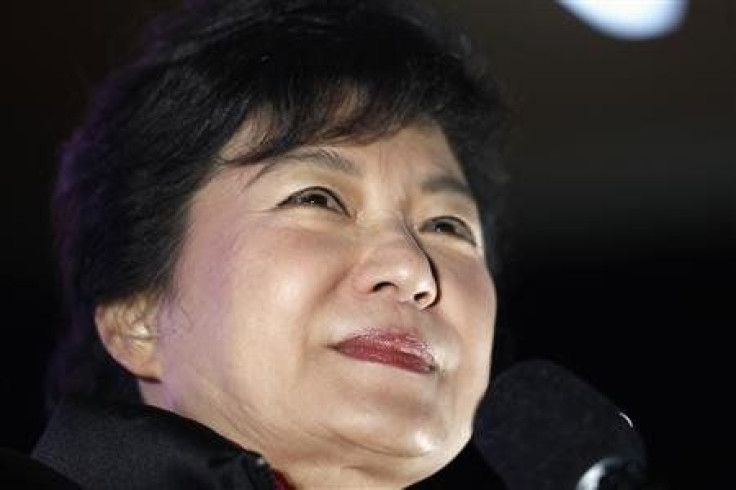New South Korean Leader Vows To Focus On National Security

Park Geun-hye, elected as the first female president in South Korea’s history, vowed to place national security as her highest priority in office, citing that North Korea’s nuclear ambitions presents a “grave” threat to the region.
"This election was held in the middle of rapid changes in the situation surrounding the Korean Peninsula," she told reporters. "North Korea's long-range missile launch symbolically showed how grave the security reality we face is."
In defiance of United Nations warnings, North Korea successfully launched a rocket on December 12, raising fears that Pyongyang is near development of a nuclear-capable intercontinental ballistic missiles.
Park, the daughter of former President Park Chung-hee, gained 51.6 percent of the vote, defeating Moon Jae-in, who received 47.9 percent. Park will be officially sworn in as president in late February.
Park, a conservative, also took an apparent swipe at Japan, Korea’s former colonial ruler, by asserting she will seek reconciliation, cooperation and peace in Northeast Asia based on a "correct perception of history." The Yonhap news agency of South Korea suggested that comment referred to Tokyo’s refusal to atone for its militaristic, imperialist history.
"I will keep my promise to the people without fail that I will open up a new era of the Korean Peninsula through strong national security and trust-based diplomacy," she added.
However, in a more conciliatory gesture, Park also vowed to reach out to North Korea with humanitarian aid and engage more with Pyongyang officials in an effort to reduce nuclear tensions on the peninsula.
Associated Press reported that North Koreans are unlikely to cooperate with Park, citing her long hostility to Communism.
“North Korea is good at applying pressure during South Korean transitions [after presidential elections],” Yoo Ho-yeol, a professor at Korea University in South Korea, told AP.
“North Korea will do something to try to test, and tame, Park.”
Andrei Lankov, a scholar on North Korea at Seoul’s Kookmin University, commented to AP: “North Korea isn’t going to surrender its nukes. They’re going to keep them indefinitely. No amount of bribing or blackmail or begging is going to change it. They are a de facto nuclear power, period, and they are going to stay that way.”
Interestingly, Japan also just elected a conservative leader, Shinzo Abe, who is aggressively seeking sanctions on North Korea over its missile tests.
Park also said she wants to strengthen her country’s long alliance with the United States, and hopes to meet with President Barack Obama and outgoing Secretary of State Hilary Clinton soon.
© Copyright IBTimes 2024. All rights reserved.











